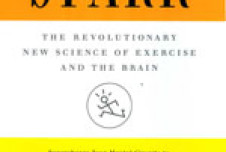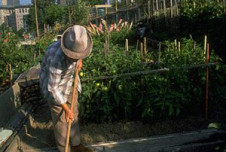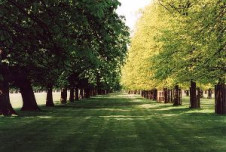I am the most non-sporting, non-athletic person you could ever meet. If we lived in a world where we were still chased by tigers, I would have been lunch-meat long ago. I’m pygmy short, legally blind, and I have the reflexes of a grazing bovine. In school, I was the chubby kid in glasses, the last one picked for games, who provoked a groan of agony from the team captain. For me, playing sports with others was torture, not pleasure.
Then I grew up and moved to San Francisco, where full-grown men and women try to live every day like Peter Pan and Wendy, and women (usually) aren’t made to feel ashamed of their variegated shapes. Emboldened, I joined a fitness outfit for women called Urban Recess, where twice a week myself and other bookworms play games like kickball, hopscotch, and even football.
We met at my neighborhood Boys and Girls Club, and sometimes the kids would even join our teams and hang out with the “big girls.” The whole experience was more “play” than “workout,” and in all my years of gym memberships, I’d never laughed so hard while getting sweaty and fit. Sure, it felt ridiculous to be jumping rope like a 10 year old, but no one could deny that the experience was pure pleasure.
In some ways it went even deeper than that. In childhood, we invent ourselves through play. In adulthood, I discovered, play gives us opportunities to reinvent ourselves.
Though the Urban Recess version of play meant kicking a ball across a field, it also meant being a part of a team. This group of girls and I soon became boisterous drinking buddies, bonding as we learned the strategy of sport’s most basic games. In the company of like-minded women, play became a safe form of learning, where we could let our inner jock run free without fear of locker-room ridicule.
And so when we played at Urban Recess, we could try on identities like a new pair of shin guards, and we could write new stories for ourselves—just like those books we read as kids, but now we were the protagonists. The sporty new personas we created allowed us brief escapes from our desk jobs, and as our skills improved we became more adventurous, escaping farther into our fantasy lives.
At Urban Recess, I was suddenly The Girl Who Could Shoot Three Baskets in a Row, and I reveled in the accolades of my peers. The proverbial cup was raised to each of us for our physical accomplishments—the fastest, the strongest, the great runners, and the quick-handed. At Urban Recess, we played at being jocks as if we were actors on a stage, pretending to be sporty, daring, powerful, and coordinated.
This had the ironic effect of putting a bit of distance between me and myself, so that I could see my adult life from a new perspective and find parts of myself that had been sitting unused in the attic of my brain. My boosted self-confidence manifested itself in my daily life. I carried my own bags of heavy groceries the long way home. I walked alone down streets that I might have previously avoided.
The experience didn’t just make me physically stronger; it also sharpened my mental focus and improved my state of mind. Many studies show that exercise makes people and animals happier.
Recently, for example, a group of researchers at Yale University found that mice who worked out on their running wheel produced more of a brain protein with antidepressant effects.
But running on a treadmill is not my idea of a good time. At Urban Recess, I did more than push my physical limits, and it wasn’t just the exercise that made me happy. My greatest pleasure came through building new communities and recapturing a lost piece of my geeky childhood.
In Beyond Love and Work: Why Adults Need to Play, Lenore Terr points out that adult play can help us give a new ending to a bad experience, and that through play, we can often relive our past comfortably, safely, and with a desired outcome. Twenty years post-schoolyard, and I have been transformed. Rather than being the last one picked for the team, I am a needed and integral player. Mission accomplished. Adult fantasy fulfilled.




Comments